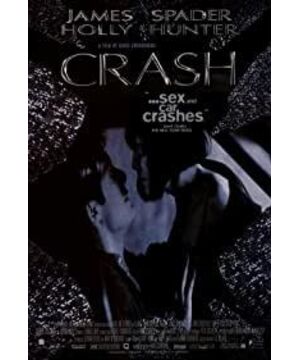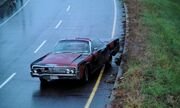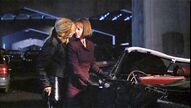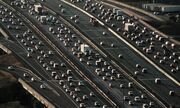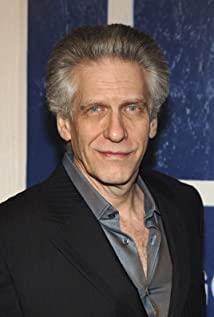Before we drove on the highway, it was a spacious valley. The
sun was shining, and the
road was bright and bright. The road was gray and
white. The green side led
us to turn on the radio. The
speaker was singing:
We were driving on the highway—
Kraftwerk, Autobahn was
in After listening to so many road safety publicity, it is almost comforting for me to have a car accident myself.
——JG Ballard The
above two introductions basically express the two attitudes of mankind towards the automobile and the civilization it represents. The first lyrics are quoted from the concept album "Autobahn" released in 1974 by Kraftwerk, the originator of German electronic music. Roughly speaking, this 22-minute electronic epic seems to eulogize a car utopia with sweet lyrics and cheerful melody. In the concert MV of this song, a family of three traveling in a car to the suburbs, a happy nuclear family, far away from the hustle and bustle of rural life, appeared constantly on the screen; however, when the lyrics and melody repeated themselves for countless times, the irony soon became apparent. Now, there is a strong contrast between the cold mechanical electronic music, the quiet singing technique and the colorful utopia in the MV: Is this the utopia we are looking forward to?
The second introduction comes from the controversial novel "Crash" by the famous British novelist JG Ballard, who was made into a movie of the same name by David Cronenberg in 1996. Whether it’s Ballard’s novels or Cronenberg’s movies, what they have shaped is a dystopian-like world. The city is composed of highways and huge airports. In this gray-white plane world, cars are not only The road tool for transporting characters, more importantly, has become a way to produce pleasure in the flesh: this is not the pleasure of a carnival beauty, nor is it the pleasure of speed when racing, but a self-destructive attempt to escape the domination of capitalism Sexual pleasure. The characters in the film use a car crash as a source of pleasure, linking the sexiness of the flesh with the curse of death. Automobile, as a kind of modern technology, is no longer the result and means of human beings overcoming nature, but the fatal deconstruction of the body-it is not an intermediary to help human activities, but a derivative of death. When the characters in the film smash their bodies for pleasure, their bodies are stitched together by countless metal brackets and iron threads. This is a body without organs, let alone organs, and it is completely composed of machinery and auxiliary devices. And scar formation. And it is precisely this kind of mechanical body that releases the possibility of human escape: when everyone sits in their own car prison, the car isolates countless unrelated private spaces on public roads, and when they collide, When the flesh, machine, and plastic touch, collide and even destroy each other, a weird but fatal connection is established. This may be another pessimistic view of modernity by novelists and filmmakers.
The above two points of view were neutralized in "Weekend" (Weekend) filmed by Godard in 1967. This is Godard in an ultra-leftist trend, and "Weekend" regards the car as a symbol of the logic of capitalist consumerism and wrote Godard's most destructive and doomsday revolutionary manifesto. The eight-minute long shot of a car accident at the beginning of the film is one of the most famous scenes in movie history: on the road from the city to the countryside, countless cars of various colors roll over, overlap each other, and emit harsh horns. The scene of the car accident in "Weekend" was inspired by the status quo in France at the time: with the economic development after the war and the increase of private cars, more and more people went on vacation from the city to the country every weekend, resulting in frequent accidents. In this film, the car symbolizes the inviolability of personal property in consumer capitalism. The car is not only the driving force of the consumer society, but also the portrayal of the consumer society. It not only transports people to the workplace, but also the object of people's desire to consume. The car can be described as an ideal consumer product because it provides a mobile home for those who leave home. It not only provides people with a sense of security in private space and private property, but also provides a sense of adventure of being displaced. When car accidents and congestion occurred, whether from the perspective of machinery, transportation, or trade, they caused chaos in the capitalist system, and all exchanges and circulation had to be suspended. This also symbolizes the collapse of the private space in the car. When a car accident occurs, people can only get out of the car, start communicating with each other, and even play ball and chess, forming a short public space on the highway.
The most outstanding imagination of highway public space is the famous book "Southern Highway" by Julio Cotazar. When severe congestion forced people to spend several days and nights on the highways leading to the city of Paris, mankind spontaneously formed a mini-community to distribute daily necessities in an orderly manner, control crime and chaos, and even love would be ambiguous here. Blossom and bear fruit in the space. However, the most outstanding feature of this novel is its unexpected ending: when the traffic is finally cleared and the flow of traffic begins to surging, the heroes and heroines who are next to each other can only disappear into the blurred night of Paris with the flow of traffic. This is not a pessimistic response to Godard.
While all these modernist masters treat cars and consumerist culture with too pessimistic and too serious attitudes, French comedian Jacques Tati treats all this in a comedic manner in his "Trafic". Car accidents and jams also happened as expected, but in Tati's version, the collision and flying of cars, and the sound of brakes, instead paved a humorous movement. People walked out of the car door, stretched their waists and stretched their bodies; a priest fell on his knees, blessing the god of modern society-the car; and Mr. Hu Luo, played by Tati himself, hobbled his body to pursue the flying wheel. Everything is extremely quiet, as if everything has stopped in this world dominated by car speed, and the collision and release force created by Cronenberg and Godard has been reversed and dispelled.
View more about Crash reviews


